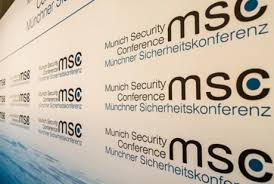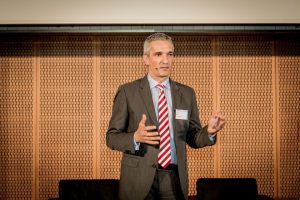Ahead of and on the sidelines of the debates at this year’s Munich Security Conference, a number of bilateral diplomatic meetings and side events by renowned international institutions and organisations took place.
Secretary General, Dr Christoph Frei, represented the World Energy Council and attended the Special Energy Dialogue ‘Energy policy - Between the Paris Agreement and Trump Presidency’, on 16 February. The goal of the dialogue, was to enable a non-ideological, cross-party exchange between business, academia, media, diplomacy and politics on current, significant energy policy issues, in order to pave the way for an effective energy consensus globally.
He commented: “The World Energy Council’s Resilience, Scenarios and global energy Issues Monitor work shows cyber threats are among top issues keeping energy leaders awake at night in countries with high infrastructure maturity in Europe and North America. Over the past three years, we have seen a rapid change from zero awareness to headline presence. As a result, more than 30 countries have put in place ambitious cyber plans and strategies, considering cyber threats as a persistent risk to their economy, energy infrastructure and defence systems."
“In these regions, energy leaders are increasingly recognising the importance of viewing cyber-attacks as a core threat to business continuity, and the need to create an organisation-wide cyber awareness culture that extends beyond traditional IT departments. Increasing interconnection and digitisation of the energy sector and its critical role in the functioning of a modern economy make the energy sector vulnerable to cyber-attacks aimed at disrupting operations."
“What makes cyber threats so dangerous is that they often go unnoticed for a while, until the real damage is clear, from stolen data over power outages to destruction of physical assets and great financial loss. Over the coming years we expect cyber risks to increase further and change the way we think about integrated infrastructure and supply chain management.”
The energy sector is of particular concern where an attack on an operating system could cause infrastructure to shut down, triggering economic or financial disruptions or even loss of life and massive environmental damage. The potential for physical damage makes this industry a prime target for cyber-criminals, state-sanctioned cyber-attacks, terrorists, hacktivists and others looking to make a statement.
In the face of this rapidly evolving cyber threat landscape, the question of the bond between the US, under the administration of Donald Trump and its European Nato allies was high on the agenda during the conference. Strong partnerships play a role in effectively addressing cyber challenges today, and in recent events, cyber-attacks have been an increasing part of hybrid warfare.
As the Alliance is faced with an evolving complex threat environment, state and non-state actors can increasingly utilise cyber-attacks in the context of military operations. NATO and its Allies in Europe rely on strong and resilient cyber defences to fulfil the Alliance’s core tasks of collective defence, crisis management and cooperative security. In the face of the threat of emerging cyber-attacks, NATO will need to be prepared to defend its networks and operations against the growing sophistication of such risks.
Over the past four decades the Munich Security Conference has become one of the most important independent forums for the exchange of views by international security policy decision-makers.







